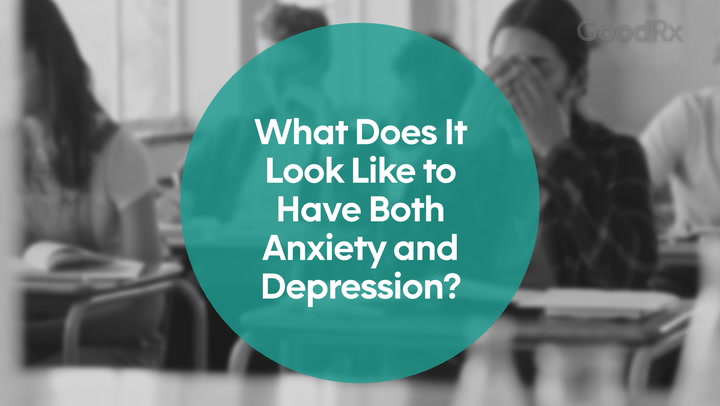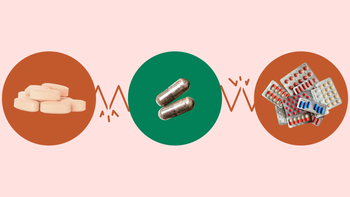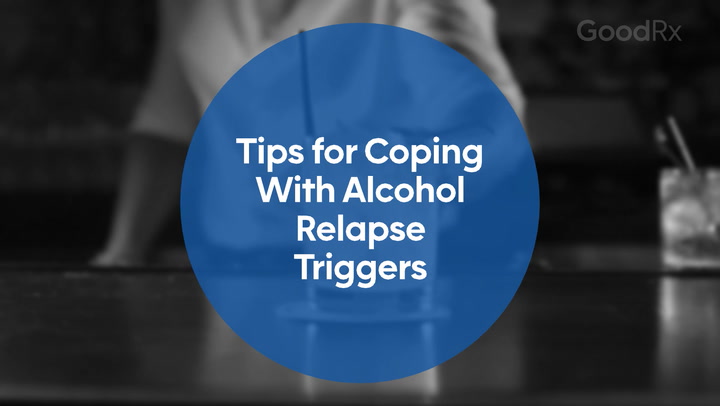
Apathy: Why Does It Feel Like You Don’t Care About Anything?
Key takeaways:
Apathy can cause you to feel unmotivated, disinterested, or emotionally detached from the world around you.
Living with apathy can make it difficult to set goals, take part in activities you used to enjoy, and maintain relationships.
Sometimes, apathy is brought on by certain mental or physical health conditions. But you don’t have to have one of these conditions to experience a temporary episode of apathy.

Everyone goes through periods of feeling unmotivated. Sometimes, even your favorite activities don’t sound like very much fun. You might have trouble making decisions and begin avoiding friends and social activities.
If that sounds familiar, you might be dealing with a case of apathy. Apathy can be caused by a variety of physical, emotional, and environmental factors, depending on the individual. But with the right support, you can uncover the cause of your apathy and reconnect with what matters most to you.
What is apathy?
According to the American Psychological Association (APA), apathy is a “lack of motivation or goal-directed behavior and indifference to one’s surroundings.” Simply put, feeling apathetic means not feeling very much of anything at all.
Search and compare options
People living with apathy have trouble getting excited or exhibiting an emotional response. Their hopes for the future may no longer seem important and they may struggle to set goals. This loss of motivation can cause people to disengage from activities they used to enjoy and make it difficult to connect with others.
Sometimes, apathy is associated with certain illnesses or disorders. But the occasional struggle with apathy is not indicative of a mental health condition.
Signs and symptoms of apathy
Apathy can take many forms, depending on the individual. But according to the research, most people struggling with apathy demonstrate the following.
A loss of interest in activities
This might mean disengaging from activities or hobbies you used to enjoy at home, work, or in your community. For example, if someone who usually runs 5 miles a day suddenly stops showing interest in exercise of any kind, they could be struggling with apathy.
Less emotional responsiveness
People living with apathy might appear to be “unphased” by whatever is going on around them. Often, they will not respond strongly (either positively or negatively) to anything. They may also seem detached from their surroundings.
Imagine witnessing someone sharing what is obviously exciting personal news. A person living with apathy might respond as if nothing important was shared. Their tone of voice and facial expressions may not match the excitement of the moment, for example.
Read more like this
Explore these related articles, suggested for readers like you.
A lack of goal-directed behavior
Apathy often affects someone’s ability to set goals and stay motivated. This can impact their ability to make decisions and attend to important tasks.
For example, a person struggling with apathy might abandon their plans to travel, apply for a new job, or start dating even if they had previously been taking steps toward their goal.
Less social connection
Apathy can lead to isolation and social withdrawal. Individuals living with apathy may no longer have an interest in spending time with others and may stop participating in social activities.
For example, apathy can cause a person to start declining invitations to parties and celebrations. They may become difficult to contact and wish to spend all of their time alone.
What causes a person to be apathetic?
Apathy can be associated with mental health conditions like depression or schizophrenia. It can also be caused by neurodegenerative disorders like Alzheimer’s disease or Parkinson’s disease.
However, a temporary apathetic state can be a normal experience for many people. You don’t have to have a health condition to experience apathy. Sometimes, apathy can be brought on in response to certain factors, such as:
Limited social interaction: If you spend a lot of time alone, you may begin to feel isolated and disconnected from the world around you. This can cause a loss of motivation to nurture relationships and participate in social activities.
The loss of something important: Apathy is a common feature of the grieving process. It can come about due to the loss of a friend or loved one, a meaningful relationship, or anything important to you.
Exposure to traumatic events: People who experience trauma often report feeling a sense of numbness in the aftermath. Many people can move through this feeling in time. But if apathy lingers long after a traumatic event, it could be a sign that a person needs professional support.
Effects of apathy
Apathy is a complex emotional and behavioral experience that affects everyone differently. But living with apathy can lead to:
Trouble making and sustaining healthy relationships
Problems at school or work, including job loss
A loss of social support
Little motivation to engage in self-care activities
A decreased capacity to work toward goals
An inability to feel excitement, pleasure, or interest toward things that were previously enjoyable
How does apathy differ from depression?
Apathy and depression are distinct experiences, but they share many of the same features. Feeling apathetic doesn’t automatically mean you have depression. But it is common for people living with depression to experience a loss of motivation, interest in social activities, and an ability to feel joy.
But some of the most common emotions that accompany depression don’t necessarily occur in people struggling with apathy. These emotions might include:
Sadness
Irritability
Guilt
Fear
Hopelessness
In other words, depression can cause a variety of uncomfortable emotions. But apathy often involves an inability to feel any emotion at all.
When does apathy become a problem?
Apathy becomes a problem when it interferes with your ability to function or erodes your quality of life in a serious way. If you’ve been struggling with apathy for some time and you can’t seem to move through it on your own, know that help is available.
How do you overcome apathy?
If you’re struggling with apathy, there are some things you can do to increase your well-being and support your mental health.
See some live music
Some research suggests that listening to live music can reduce apathy. Researchers have found that non-live music was beneficial for some participants, but that live, interactive music helped most.
Get moving
Exercise has been shown to counteract apathy. So think about the types of movement you enjoy and start small. Move your body in whatever way feels good to you.
Find a creative outlet
Some people living with apathy find relief from participating in creative group activities, like art therapy. But you can still benefit from finding a creative outlet on your own. Draw, paint, write, or do whatever you enjoy. And don’t feel like you have to tackle a major creative project all at once.
Break it down
If you’re not feeling motivated to get things done, try breaking big projects into smaller tasks. Build momentum by taking small steps toward your greater goal.
Focus on common interests
If apathy has made it difficult for you to build a social network, look for opportunities to connect with people who share your interests. This could mean joining a club, volunteering, or seeking a faith-based community if that’s a fit for you.
Get professional help
In talking to a mental health professional, you can discover what might be causing your apathy and take steps to overcome it. And depending on your other symptoms, it may be advisable to speak with a medical provider about what you’re experiencing. They can determine whether your apathy is being caused by an underlying health condition, so that you can get the care you need to heal.
The bottom line
Apathy can be caused by a variety of mental and physical health conditions. But for many people, it’s a temporary experience that they’re able to work through in time.
However, if you’re concerned about how apathy is affecting your mental health and your quality of life, know that help is available. With the right support, you can get to the root of what’s causing your apathy and work toward reconnecting with your emotions and the world around you.
Why trust our experts?



References
American Psychological Association Dictionary of Psychology. (n.d.). Apathy.
Cholbi, M. (2019). Regret, resilience, and the nature of grief. Journal of Moral Philosophy.
Fahed, M., et al. (2021). Apathy: Neurobiology, assessment and treatment. Clinical Psychopharmacology and Neuroscience.
Holmes, C., et al. (2006). Keep music live: music and the alleviation of apathy in dementia subjects. International Psychogeriatrics.
Le Heron, C., et al. (2018). The anatomy of apathy: A neurocognitive framework for amotivated behaviour. Neuropsychologia.
Levy, M. L., et al. (1998). Apathy is not depression. The Journal of Neuropsychiatry and Clinical Neurosciences.
Levy, R., et al. (2006). Apathy and the functional anatomy of the prefrontal cortex-basal ganglia circuits. Cerebral Cortex.
Lozupone, M., et al. (2018). Social dysfunction in older age and relationships with cognition, depression, and apathy: The GreatAGE study. Journal of Alzheimer’s Disease.
Manera, V., et al. (2019). Recommendations for the nonpharmacological treatment of apathy in brain disorders. American Journal of Geriatric Psychiatry.
Marin, R. S. (1991). Apathy: A neuropsychiatric syndrome.
Mele, B., et al. (2020). Diagnosis, treatment and management of apathy in Parkinson’s disease: A scoping review. BMJ Open.
Miller, D. S., et al. (2021). Diagnostic criteria for apathy in neurocognitive disorders. Alzheimer’s and Dementia.
Robert, P. H., et al. (2002). The Apathy Inventory: assessment of apathy and awareness in Alzheimer’s disease, Parkinson’s disease and mild cognitive impairment. International Journal of Geriatric Psychiatry.
Valles, K., et al. (2023). Behavioral correlates of apathy in community dwelling older adults. The American Journal of Geriatric Psychiatry.
For additional resources or to connect with mental health services in your area, call SAMHSA’s National Helpline at 1-800-662-4357. For immediate assistance, call the National Suicide Prevention Lifeline at 988, or text HOME to 741-741 to reach the Crisis Text Line.





























